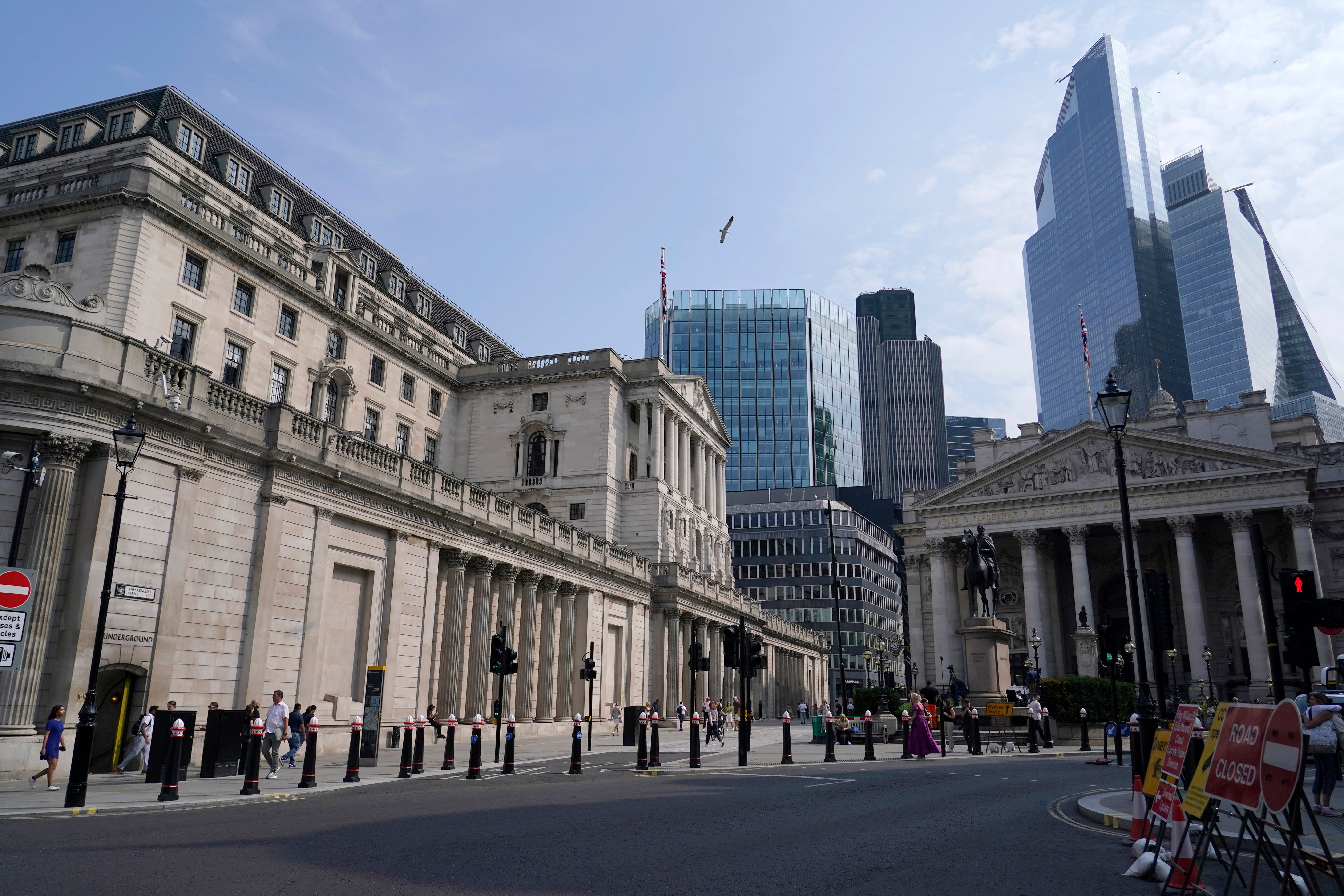Borrowers must wait until November for help as Bank of England holds rates
Europe and the US cut rates but the Bank of England stood its ground in favour of a ‘gradual’ approach. James Moore says a UK interest rate cut is now likely in November but predictions of a second cut in December may be wide of the mark


After the US Federal Reserve went big with a 0.5 point rate cut, hot on the heels of a European Central Bank cut, some suggested the Bank of England would respond on Thursday with a cut of its own.
Those buying into this theory clearly hadn’t been paying attention, as the rate-setting Monetary Policy Committee (MPC) made clear by holding rates at 5 per cent.
Governor Andrew Bailey said the MPC will not be governed by the Fed or anyone else (and nor should it be). The MPC has also repeatedly talked about the need for a cautious approach when it comes to reducing rates – which rose sharply in response to last year’s inflationary spike – to ensure there is no repeat of that painful episode. Keeping inflation down is “vital”, it said.
Big splashy moves such as the Fed’s 0.5 cut, which was applauded on Wall Street and lit a fire under the world’s markets, are just not the MPC’s thing.
After getting a firm ticking-off from Ben Bernanke, a former chair of the Federal Reserve brought in to review the Bank’s economic modelling and forecasting in the wake of its failure to predict the post-pandemic inflationary surge, the MPC published three scenarios.
In the first – and most optimistic, for borrowers – inflationary pressures ease as the impact of global shocks such as the pandemic and the war in Ukraine fade away. In a second, lower growth and higher rates are needed for longer to ease inflation. Under the third, inflation remains a persistent bugbear and rates have to stay higher for longer than anyone hoped.
I suspect the first is the most likely outcome but the MPC is telling us it wants more time to be sure of that, regardless of what the Fed and the ECB are thinking.
It has also – again – voiced concerns about the rapid rate at which the price of services is increasing. Service price inflation jumped last month and, while this was not unexpected, a figure consistently north of 5 per cent is clearly a problem.
The MPC thinks pressure from wage rises is moderating. It also thinks price pressures are easing. The economy isn’t exactly going gangbusters. But as I predicted, it does want to gauge the impact of the forthcoming Budget, which chancellor Rachel Reeves has made clear is going to hurt.
Both Reeves and Keir Starmer have made a big noise about how they want to be the most pro-growth government. Squeezing people, even if necessary because of the sorry state of the public finances Labour has inherited, isn’t going to help with that.
The chancellor, who is doing an awful lot of borrowing herself (on behalf of the nation), thus needs just as much of a helping hand from the Bank as small businesses and homeowners.
The Bank probably isn’t going to go as quickly as she might like, with the exception of Swati Dhingra. As I forecast, yesterday, the vote to hold rates went 8-1 with dove-in-chief Dhingra, an external meter of the MPC, the lone voice of dissent calling for a cut. She was not even joined by her erstwhile ally Dave Ramsden, one of the Bank’s deputy governors. That speaks volumes.
However, talk of a “gradual” path downwards still leaves the MPC scope to cut by another quarter-point in November, when the next meeting is scheduled. I think it will do that, although the vote will be far from unanimous.
There is a bit more good news for borrowers; while base rates don’t directly influence the price of the two- and five-year fixes most homeowners prefer, an expected downward path still helps. Property website Rightmove also thinks at least some lenders will cut prices in the hopes of keeping the housing market buoyant and stimulating pre-Christmas business.
That’s where the good news ends. A large part of the City has been forecasting two additional cuts by the end of the year; I don’t agree. Finishing 2024 with rates at 4.75 per cent is better than how it began the year, at 5.25 per cent, but monetary policy at that level remains restrictive. The going report for the economy into 2025 is “heavy”.






Join our commenting forum
Join thought-provoking conversations, follow other Independent readers and see their replies
Comments